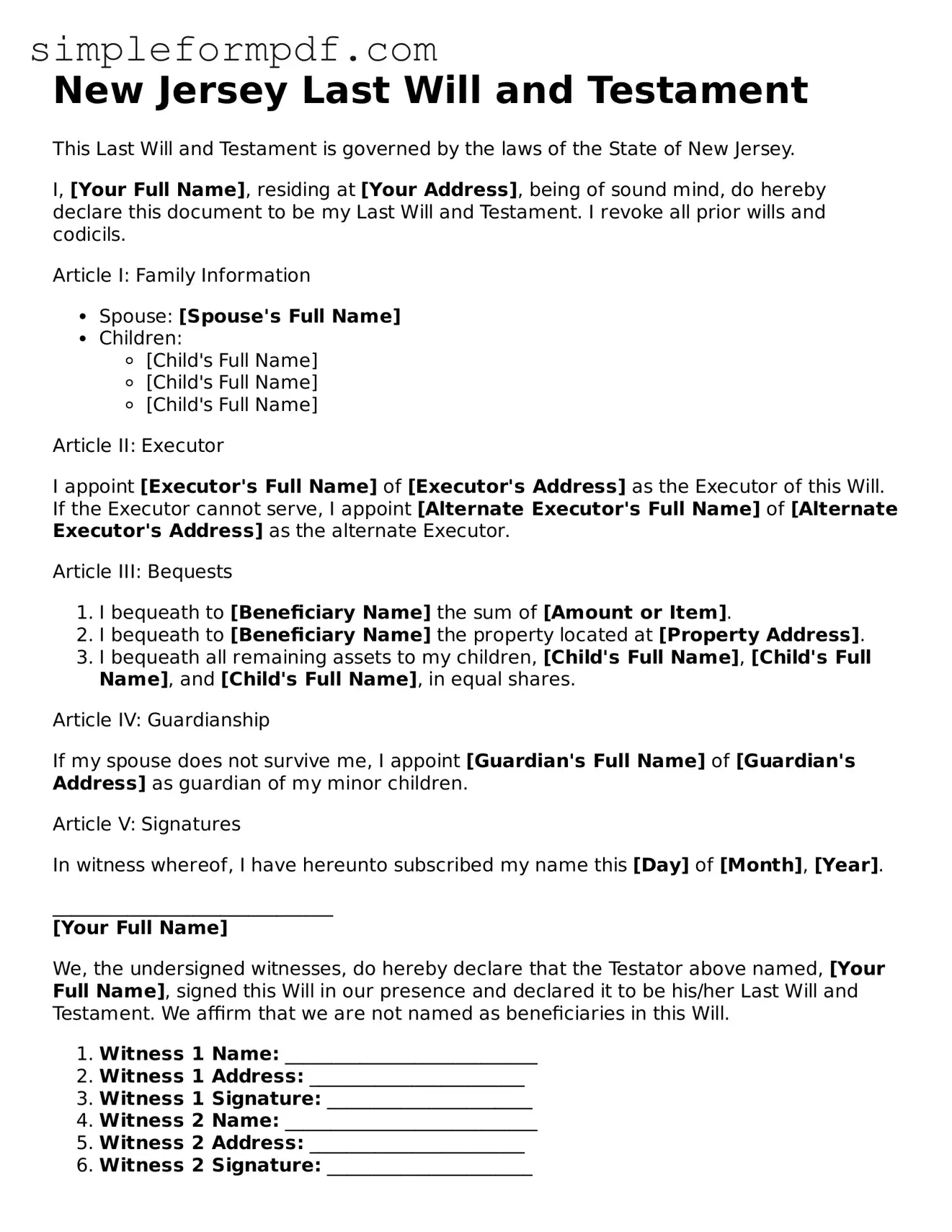Free Last Will and Testament Form for the State of New Jersey
A Last Will and Testament is a legal document that outlines how a person's assets and affairs should be handled after their passing. In New Jersey, this form allows individuals to express their wishes regarding the distribution of their property, the care of their dependents, and the appointment of an executor. Understanding this form is crucial for ensuring that your intentions are honored and your loved ones are taken care of.
Ready to take the next step? Fill out the form by clicking the button below.
Launch Editor

Free Last Will and Testament Form for the State of New Jersey
Launch Editor
Need instant form completion?
Finish Last Will and Testament online in just a few minutes.
Launch Editor
or
Download PDF
